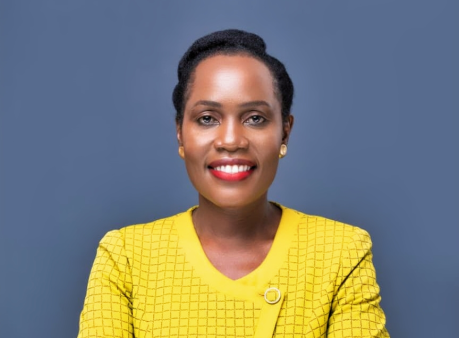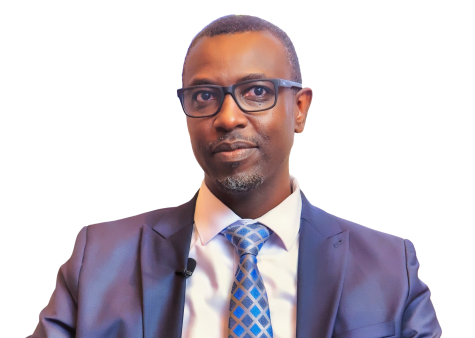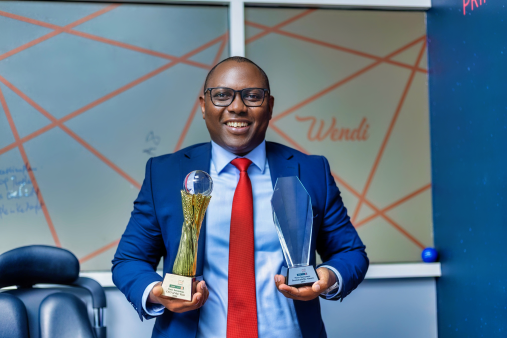First, tell us about Paul Ssali
I’m a Christian, husband to my beautiful wife, Joanita, and father of three children—one girl and two boys. I’m also a qualified public accountant, a member in good standing of the Institute of Certified Public Accountants of Uganda (ICPAU), and a fellow of ACCA. Career-wise, I am a partner with Deloitte Africa and the team Leader or Country Managing Partner for Deloitte Uganda.
You are the Country Managing Partner of Deloitte Uganda and a Partner in Deloitte Africa. What is the difference?
Deloitte’s relationship with Uganda dates back more than 60 years. We first opened an office here in the early 1960s, and then we re-established that office in 1996 after an absence of about eight years. In Uganda, we have about 100 staff across three main service lines: audit and assurance, tax and legal, and the advisory section.
Deloitte Uganda is part of the East Africa cluster comprising the traditional East African countries—Kenya, Tanzania, Uganda, Zambia, and Malawi. Now, we have re-entered Ethiopia as Deloitte East Africa. The Deloitte East Africa cluster then fully integrates into Deloitte Africa. When I say full integration, I mean we are one firm. That is why I say I’m a partner of Deloitte Africa and then Country Managing Partner for Deloitte Uganda.
Tell us about your journey into the finance profession. Is this all you always wanted to be when you were young?
I never did sciences; I did arts in high school. I went to King’s College Buddo for six years, and thereafter, I joined Makerere University, where I earned a BA in Economics. I thought I’d be a banker, but Deloitte recruited me during their annual graduate recruitment. I started my career journey as an audit associate and rose from the lowest rank to senior, manager, director, Partner, and finally Country Managing Partner. I have grown up in Deloitte. I have spent all my working life so far at Deloitte.
Every time I see someone who has been working in one place for over 20 years, I can’t help but think they are some special people. Does it take a particular person or a unique workplace for someone to last that long? What are you guys made of?
In my cohort, 10 people joined Deloitte, but only two are still with the firm. Audit firms are conveyor belts and training grounds, but some people stay and make long careers with audit firms and I’m one of those remnants. I’ve had a rich career with Deloitte. I’ve had so many firsts with lots of exposure and career movement. So, it has been a satisfying career for me. I have enjoyed the profession and my career so far.
I understand you have just stepped into the role of Country Managing Partner. I imagine your eyes must have been looking towards the top when you first joined. Now that you are here, what excites you about the role?
It is quite exciting. Of course, I’m also cognizant of the responsibility that comes with the role. However, I am still excited because I see many technological advancements that make traditional professions like accounting and auditing more interesting.
Leading and nurturing a generation of young professionals whose work approach, work ethic and exposure are not only significantly different from just five years ago but exponentially evolving daily, is truly exciting, especially for traditional roles like accounting, but also for the dynamic profession of business advisory.
In my early years, it was tough. You had to be resilient. But I’m seeing a lot of enablers now, that are making the profession more efficient. We are seeing tools that can do work that an auditor used to do for three days, maybe in a few minutes, such as Data Snipper. We are seeing tools that can, for example, summarise salient features in an agreement− you scan it, and the tool helps you capture only the salient features and clauses so that you can pay more attention to those instead of poring over the entire agreement.
How are you adapting to that challenging landscape? This is Uganda, and there will always be that client who prioritizes price first.
By default, some clients may look at audits or whatever services are being offered as commodities, but then some see the value. As an auditor or professional services provider, you must show the value you bring to the game. The client must see and appreciate the insights you bring to the business to help them improve their efficiencies, to help them manage their various stakeholders efficiently. So, if the client can see your value, that will be the differentiator.
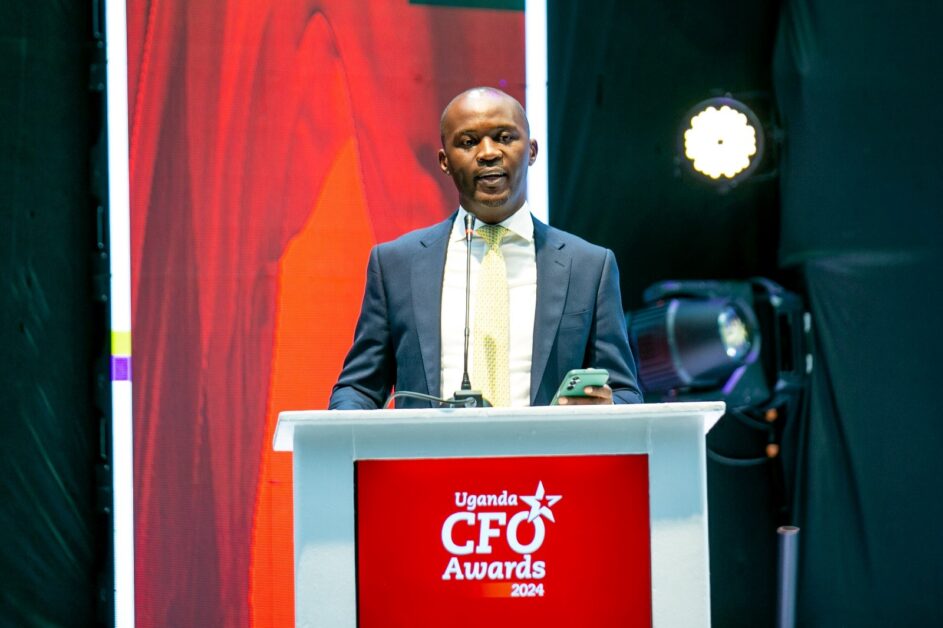
What would you say about your leadership style, and which values fit into that leadership style? What values do you consider essential as a leader?
Growing through the ranks at Deloitte has given me an appreciation of the company culture, expectations of the staff, and a good angle on the leadership positioning, which creates a strong linkage for me of both.
My leadership style is democratic. It’s an open-door policy, very collaborative and consultative. Deloitte recruits the best in the market. For the growth of the firm and to serve our clients with excellence and distinction, all these brilliant minds must come into play. So it would be best if you had a more democratic and consultative leadership style because of the brains that you’re working with.
Talking about the graduate recruits that you get from the universities⏤ and this is for the high school or university students seeking to join the profession⏤ what kind of people does Deloitte look out for? How can one prepare to join or make themselves attractive to Deloitte?
First of all, if I may speak from an audit perspective, we do not recruit auditors or accountants. We recruit people and then develop them into auditors and accountants. We offer them professional courses; we pay for the professional courses, whether ACCA or CPA or CISA etc, and then through the job experiences, they keep on growing. So, we make the auditors or the accountants.
As such, we don’t look out only for B.Com or accounting courses from the university; we will recruit everyone and anyone who meets our minimum criteria and then grow them into the professionals that we want. And that’s the approach for most of the other accounting firms as well.
I recently spoke to some professionals, especially lawyers, who generally believe that the quality of university graduates has declined over time. In your area, have you seen any specific change in the quality of University graduates over time? Would you say things are getting better or worse? Are there areas where the education system needs to improve the skillsets imparted to their students?
The lawyers have one pool to recruit from, but as auditors, accountants, or consultants, we recruit from a diverse pool. We are not restricted like the lawyers from the Law Development Centre. As I mentioned earlier, we recruit from a diverse pool and then we make the professionals we want through professional training and on-the-job experiences. That’s why we have been able to get the excellent quality that we look for.
That said, once we get those people, the onus is on us to develop them, instil the Deloitte ethos and ethics, and inculcate in them the technical skills that can be used to serve the clients.
Many leaders I have talked to say that Gen Z employees are different kinds of people and managing them requires a particular skill. What has been your experience? How do you manage this unique group to tap into their diversity of talents and skills while managing the differences in their approaches to doing things?
Given the opportunity, the focus should be on harnessing that energy that Gen Zs have to get a lot done. Rather than trying to push them into a box, you can harness their energy to get things done because, even in audit now as a profession, we need diverse skill sets- technology, data analytics and all. The hybrid work model has worked for us well because people know their deliverables; they know what has to be delivered, so to restrict them to an eight-to-five setting in an office may be something that they may not want. This has helped us manage some of the Gen Z traits. They can work very well from wherever they are (2 days a week), as we hold them accountable for deliverables.
Deloitte and ACCA Uganda have partnered over the last 8 years to organise the CFO Awards, which aims at illuminating the role that the finance functions play in helping to build resilient organisations and sustainable business models. To what extent would you say this role has been achieved?
We have had a very fruitful partnership. We started with just the awards, but now we also have the CFO Network Forums. The awards, of course, recognise excellence in finance leadership across very many sectors. But then we realised that as CFOs, they also need a community to network with and get some mentorship as well. So whereas the CFO awards have brought the CFO role to the forefront, the CFO Network Forums have helped with mentorship and knowledge sharing. For example, a CFO can easily call another CFO they met at the forum to discuss an issue they might be facing or how to navigate career growth in finance. That has helped the CFO community, and that’s one of the most significant impacts we are seeing.
This year’s awards theme was “Pushing Boundaries, Exploring the Growth Mindset”. What informed this theme?
“Pushing Boundaries, Exploring the Growth Mindset” is a critical theme, given the changes happening. The pace of change today is unprecedented. If you do not push boundaries and stay in the traditional CFO mindset without exploring emerging issues like AI, cyber issues, and ESG issues, you will be wiped out; you might be rendered irrelevant to the challenges of today. CFOS must continue exploring and expanding the boundaries and getting to know things outside their traditional role. That is when you can add value to yourself, your organisation and the profession.
What challenges do you see CFOs facing as they try to push boundaries in today’s rapidly changing economic environment?
Yes, several challenges come with trying to push the boundaries. One of the issues you find is that some aspects of pushing boundaries require more extended and longer-term thinking, in that you forego short-term gains or results to have a longer-term view. So balancing that short-term and long-term view is a challenge that CFOs face because some of the stakeholders, e.g., shareholders, want to see the short-term results, but then you are making investments that are going to yield results much later because you foresee emerging issues. So, having that stakeholder engagement and trying to make them see your view is very important.
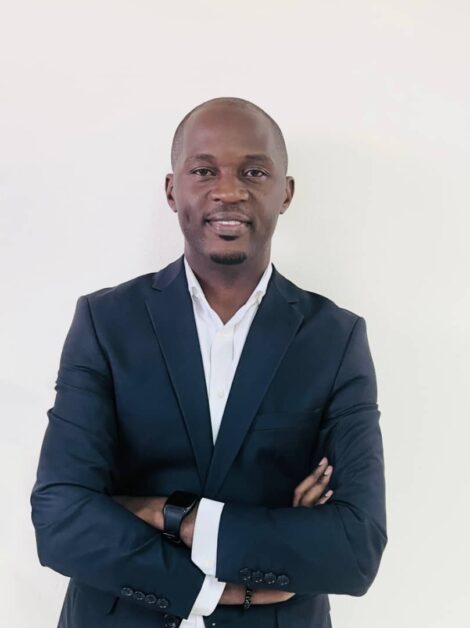
The other aspect faced by the CFOs of today, or the finance profession, is talent acquisition. The CFO can’t do all this alone. All these emerging challenges and opportunities we discussed above require the right talent. Therefore, the CFO has to attract and develop the skills and talent to handle them. But then, because every entity faces the same issues, there’s a lot of competition for finance talent. Retaining talent is becoming a challenge, forcing CFOs to evolve into some sort of talent managers as well. It can’t be left to HR alone. As a CFO, you must also manage your talent pool well- train, reward and skill them.
Then, we see a lot of cyber issues. Part of pushing boundaries as a CFO requires digitising and automating processes within your ecosystem. But as you do that, you also increase your vulnerability to cyber attacks. We are seeing a lot of that in the news. This then requires the CFO to continuously invest in readiness to prevent or deal with attacks when they occur.
In the face of those challenges and the dynamic landscape, what skills should the CFO and possibly CFOs of the future be interested in, over and above traditional knowledge? These could be skills not offered within the realm of the finance profession and perhaps taught elsewhere. So, what kind of skills should CFOs or other finance people look to acquire?
Finance people need to keep acquiring knowledge because without acquiring knowledge, you are dead. Some of the trends that they need to keep up with are AI and automation. Artificial Intelligence is now here, from automating simple processes to providing advanced analytics for essential decision-making. CFOs need to be interested in AI and automation.
The other aspect is digital and finance technologies. They are becoming part of the business ecosystem. No business can survive without embedding some fintech into its systems and processes. You need to have some digital skills or knowledge. You’ve seen banks now investing in e-wallets and advanced apps, so you must also learn about the FinTech world.
The other important element is ESG. It is no longer a buzzword. Credit must be given to the CFO community in Uganda because I’ve seen that most of the workshops and panel discussions on ESG are led by CFOs. ESG is now being embedded in regulation and international trade, you must have seen the recent EU Deforestation Regulations and how they might impact our coffee exports to the EU. You are caught unawares and flat-footed if you’re not ahead of the curve.
It is said that the higher you go in an organisation, the lonelier it gets, as more and more of your colleagues want to avoid you. How do you cope?
It depends on the culture of the organisation you are in. I earlier spoke of the open-door culture at Deloitte. Anyone can walk into my office anytime, any day. We have also tried to have engagements that bring people together outside work. We often get staff retreats, and I participate fully.
Aside from that, I also have a community of peers within Deloitte, but also outside the firm. That community is important because there are some issues that you may not be able to take to the finish line alone, hence the need to reach out to peers so that you can cope with the different demands of the job.
Also, important is faith in God.
What worries you when you look at Uganda’s business landscape and finance profession? What keeps you awake about today and the future?
It’s the pace of change. It keeps you on the edge, but therein lies an opportunity as well. Discovering new ways to drive efficiency and staying relevant is a must.
The other issue, of course, is talent. Competition for talent is cutthroat and that competition is no longer local. The UK, Australia, etc., are all raiding Africa for talent. Many people in those markets left the finance profession after COVID. Talent retention is something keeping today’s leaders on the edge.
From a preparedness perspective and looking at the future, what skills do you think parents need to start teaching their children- skills that expand their horizons beyond Uganda? Is our education system sufficiently preparing our children for the present and future jobs?
Of course, the traditional education system gives you some grounding, but as guardians and parents, we must keep up with the emerging issues and trends in the job marketplace. What are the emerging careers that are coming up? Parents/ guardians must keep up with the trends, especially those outside the formal school system, so they can supplement their children’s education with courses and programmes that prepare them for the future, e.g data analytics and AI courses because that’s the future. Parents and guardians should keep abreast of what’s happening to give their children diverse exposure.
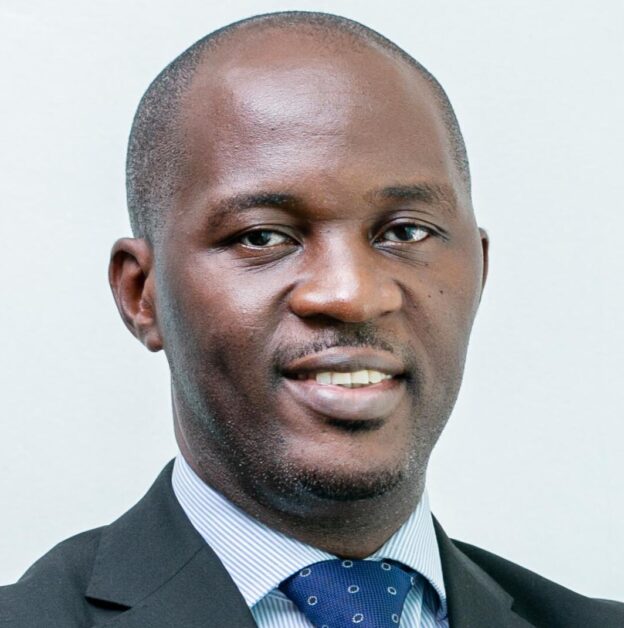
What advice would you give to some of the young and upcoming finance professionals who are still trying to find their feet in their careers in terms of staying the course and doing what needs to be done?
One piece of advice is to seek mentorship from those who have gone before us—those who have walked these streets before. As young finance professionals, it’s essential to always have that mentorship.
Secondly, having a community of peers or a community of people who are doing the same thing as you, helps you troubleshoot some of the issues or some of the things that are keeping you down. It is important to have someone you look up to and bounce off ideas.
Related to that, how do initiatives such as the CFO Awards play the role of the professional community of peers that you have mentioned above? What advice do you give those who do not think participating in such awards is important?
Professional awards such as the CFO Awards are very important because they bring you forward. There’s a CFO you might not know, but if they win an award or get recognised by peers, they’re brought forward. People get to know them. For example, you are a finance professional who plans to retire after 20-30 years and be on the board, but who knows you? What have you done? Have you discussed a topical issue on a panel or moderated a professional panel?
By being part of the CFO Awards, Deloitte is trying to create such opportunities for our colleagues in the profession to come to the forefront because then, after your active professional life is done, you must remain a sought-after and resourceful finance professional, maybe in boardrooms. It’s important that CFOs come and participate in these awards and, after that, also come to the CFO Networking Forums to create new relationships, strengthen old ones, as well as exchange knowledge. That is one sure way to push boundaries and explore growth mindsets.
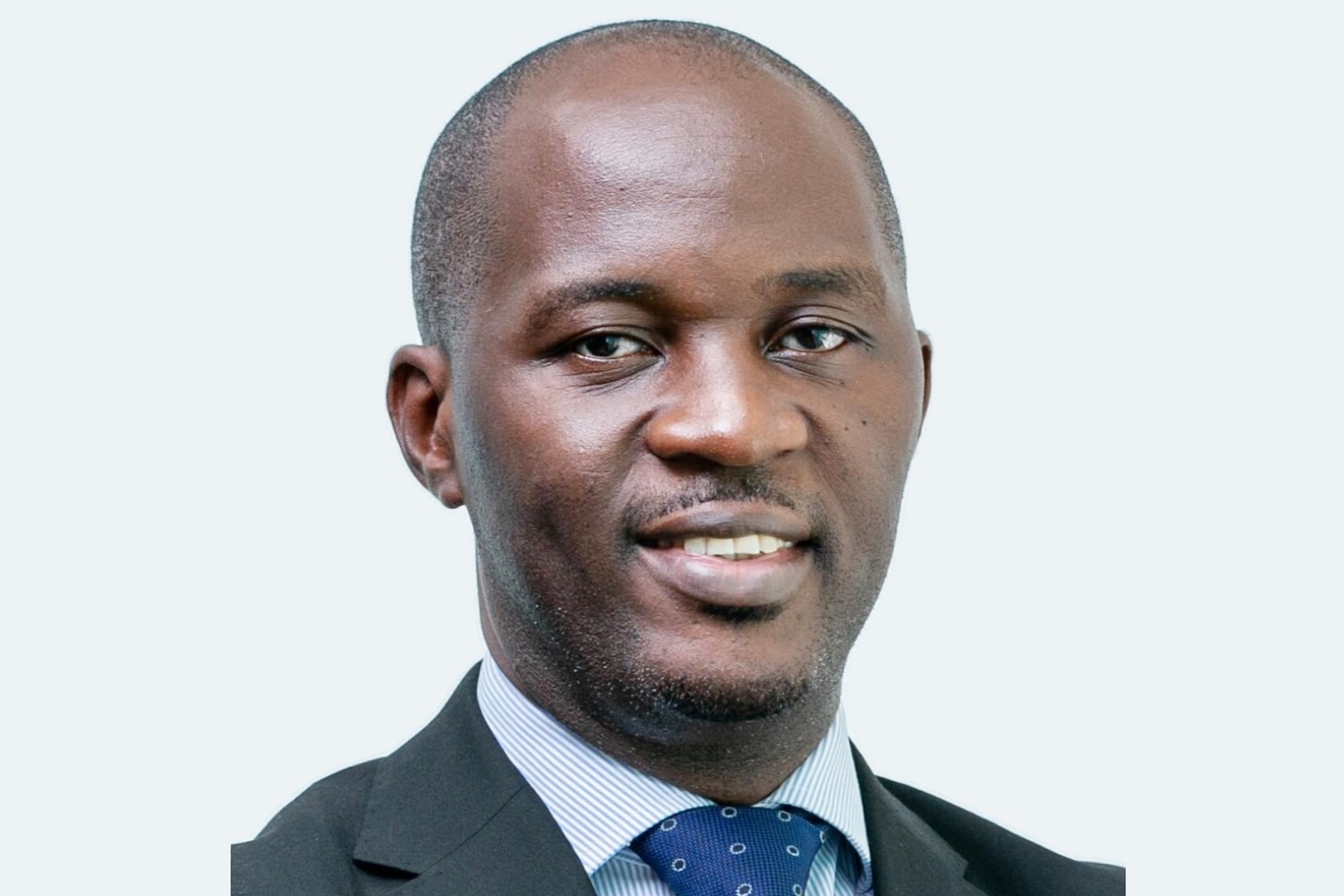
 The Future is Creative: Gen Z, Talent, and the New Workforce Reshaping Uganda’s Advertising Industry
The Future is Creative: Gen Z, Talent, and the New Workforce Reshaping Uganda’s Advertising Industry
